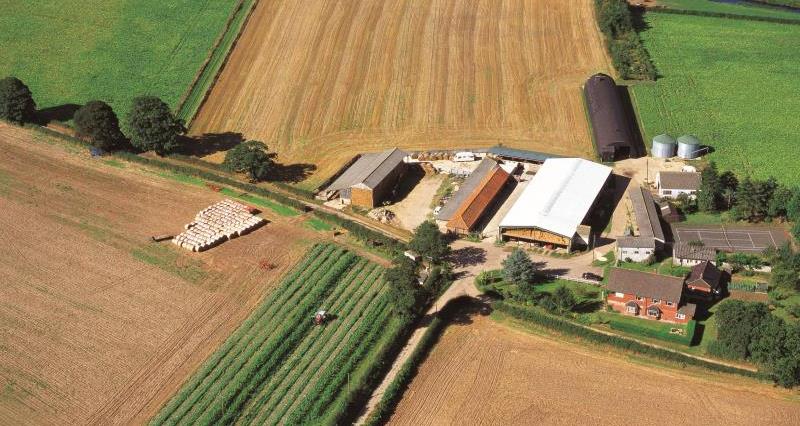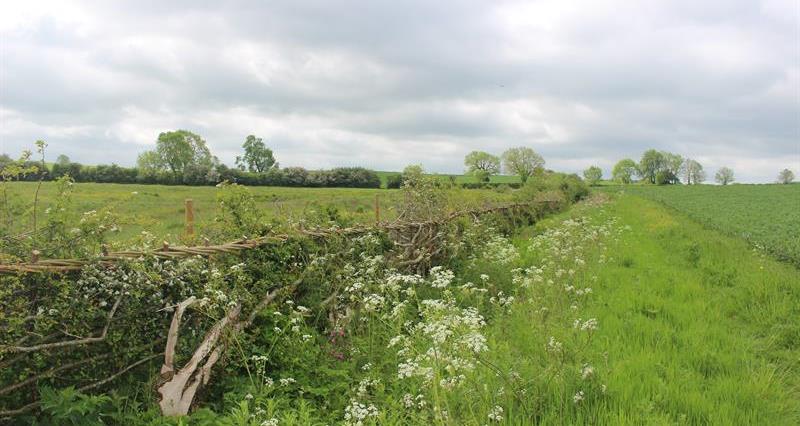If you have an issue with the RPA and are unhappy with their decision making, or with the quality of service you have received, you can follow their complaints procedure to try and reach a resolution.
There is a three-stage process which starts with an initial query being raised. Once the RPA has responded this will progress to stage two, which is a complaint which the RPA will then respond to.
The final stage is then dependent on whether the complaint relates to a scheme decision or is linked to poor service provided by the RPA. If it is a decision made by the RPA being challenged then the final stage will be an appeal, after this the option within tight time limits is to seek a Judicial Review, while the final stage for a service level query would be a formal complaint to the to the PSHO (Parliamentary and Health Services Ombudsman) where the RPA service falls below expectations.
This is important to understand as the RPA is limited in its scope to only consider decisions it has made, and not levels of service. If a complaint is more complex and covers both a decision the RPA has made as well as an element of customer service, then it may reach a stage where both elements will need to be used. This means an issue could be dealt with by both an RPA appeal and a complaint into the PSHO.
Where to start
The first step in the complaints process is to submit an initial query to the RPA. Who you raise the query with will depend on the scheme you are focused on – there is a dedicated section on GOV.UK which can direct you to the individual section for the scheme you are concerned about.
An initial query can be raised online, or in paper form. If you need a paper copy of the forms then these can be found at: GOV.UK | Rural Payments Agency – Complaints procedure
Some of the more common forms can be found below:
- GOV.UK | Contact the RPA about SFI
- GOV.UK | Environmental Stewardship Scheme query form
- GOV.UK | Countryside Stewardship scheme query form
It is important to note that these are not the only examples, there are several other forms available on GOV.UK.
If you are filling out one of these forms, then it will be helpful to ensure you include the following information to allow the RPA to fully understand the nature of your query and allow for a prompt response.
- Ensure your contact details are included, this includes your full name, address and telephone number or your email. A backup means of communication is also helpful in case the RPA is unable to contact you through the primary means of contact.
- Explain as clearly as you can what has happened and when, this includes what scheme you are querying, your agreement details, a comprehensive summary of the situation and when it occurred.
- Explain the impact of the situation, it will be important for the RPA to understand the impact of the situation and how it had impacted upon your businesses. The more detail you can include here the better, but remember to keep it concise and clear and to the point.
- Include the details of who you engaged with at the RPA, this will be important to support their prompt response by being able to identify the staff who were involved in the situation.
- Outline how you would like the situation to be resolved, be pragmatic when outlining your ideal outcome. It will make things far easier if you are being realistic when outlining your request, more extreme demands run the risk of worsening the likelihood of a positive outcome from the outset.
- Further references which may help, this will depend on the nature of the query, but it could include details such as your business’s SBI, or your CPH number or a particular reference code to a specific claim, agreement or project.
Once the query has been submitted, the RPA will begin its internal processes to review the query and will respond in time. It is important to ensure you are submitting a query using the correct claim form, as a delay can occur if the wrong form is used and the query is sent to the wrong team within the RPA.
For those who cannot access the rural payments service, queries can still be submitted through email or over the phone at:
- Email: [email protected]
- Phone: 0300 020 0301
Raising a query using the Rural Payments Service
For those using the Rural Payment’s Service, there is an option to sign in and submit an initial query for a number of schemes.
Accessing the Rural Payments Service can be done at: Rural Payments | Sign in or register for Rural Payments
Once you have logged in, you will see an option called ‘Create or view a query’, which will walk you through the process for submitting the correct query.
Queries relating to grant schemes
Where your query relates to one of the various grant schemes, the RPA ask that you contact them by email if possible.
The main grant contact details can be found below:
- Farming Equipment and Technology Fund - email [email protected]
- Farming Transformation Fund - email [email protected]
- Farming Recovery Fund - email [email protected]
- Water Restoration Fund - email [email protected]
- a Rural Development Programme for England (RDPE) socio-economic scheme (such as Growth or Countryside Productivity) - email [email protected]
If you do not have access to an email, then please contact the RPA on 0300 020 0301, and explain that you wish to raise a query, it will be helpful to note down which grant you are calling about to help them direct you to the relevant department.
Alternatively, you can also write to the RPA at:
Rural Payments Agency
Lancaster House
Hampshire Court
Newcastle Business Park
Newcastle upon Tyne
NE4 7YH
If you are posting to the RPA, it is advisable to send with some form of tracking, for your own records, but also to ensure the document does reach the RPA.
BPS related queries
In January 2024, the RPA introduced a new 60-day deadline for introducing any new queries for BPS. This deadline applied to all queries raised before the 1 January 2024, and meant that, in almost all cases, they would need to have been raised by the 29 February 2024.
In certain cases a query may still be possible where the information was communicated to you within the last 60 days. This ‘date of notification’ will be the date which RPA either wrote to you or sent you an email.
Further information on what you need to do if a query involved BPS can be found at: GOV.UK | Rural Payments Agency – Complaints procedure
Raising a formal complaint
If the RPA have responded to your initial query, and the issue remains unresolved, the next stage is to raise a formal complaint.
This can be done in two ways, the first is if your query was responded to by the RPA on an email, you can reply to that email raising your complaint.
The second way is to submit a complaint form, which can be found at: GOV.UK | Complaints procedure – Formal complaint. The form outlines what information is needed in each section to make it as straightforward as possible. If the complaint is particularly complex, or there are a lot of details to include, then there is also a continuation form which can help capture all the points you want to be raised.
If you have employed an agent to assist with the submission of the complaint, and this has incurred additional costs, these can be reimbursed by the RPA if the complaint outcome is in your favour.
There will be an additional section on the form to complete, outlining the work the agent has done. Usually, an itemised invoice will be expected, with clear indication of what has been paid for to date. There will be a need to isolate and identify the work the agent has done specific to the complaint submission. The RPA will not cover costs associated with the regular work an agent undertakes.
The RPA also does not cover legal costs.
In the first instance the RPA may try to call you, however, if this is not possible then they may attempt to write or email you instead. Please do make clear what your preferred means of communication are, as this will save time for you and the RPA and allow for a prompt response.
In most cases the complaint can be resolved quickly, however, where this is not the case, the RPA will contact you and establish a timetable for completion the settling of the complaint.
Where a complaint relates to the conduct of an individual, an investigation by the appropriate manager will take place. In some cases, this may take longer, depending upon the nature of the complaint.
Appealing the RPA's decision
At this stage, the first thing to consider is which category your complaint falls into. An appeal is only one of two options at this stage, and in some cases a complaint may actually require both mechanisms being used.
- If it is a complaint relating to a scheme decision the RPA has made, it will progress to an appeal.
- If it is a complaint relating to poor levels of customer service, it will progress to a formal complaint to the PSHO (Parliamentary Service and Health Ombudsman).
If the complaint relates to a scheme decision the RPA has made, it must satisfy one of three key criteria:
- The RPA made a mistake based on a factual error,
- The RPA made a processing error, or
- The RPA got the law wrong.
Appeals made under this option must be submitted within 60 days of the date you were advised of the decision which is being appealed against.
To start an appeal, the appeals form on GOV.UK will be the starting document. There is a continuation sheet available, so do not worry about being confined to the available space on the form itself. It is important to ensure you include all the information you feel is relevant to the appeal and double check the form before submitting to ensure you have made all of the correct choices on the paperwork.
As with a complaint, if you utilise an agent and there are incurred costs, these can be reimbursed should the appeal outcome be in your favour.
In most cases an appeal will not cost you anything, however costs can be incurred if the appeal relates to a BPS claim or is linked to a Trader Scheme. These costs vary from £100-450. They are refunded if your appeal is successful.
All other relevant schemes do not currently incur an appeal cost.
A completed claim form, sometimes called a CA1 form, will then need to be submitted either by email to: [email protected], or by post to:
Rural Payments Agency
Sterling House
Dix's Field
Exeter
EX1 1QA
Once the RPA receive your appeal, it will be checked to ensure it meets the requirements and the RPA will then acknowledge the appeal request. It is at this stage that it will also ask for any appeal fees to be paid, if they apply.
If necessary, the RPA may come back to you and ask for further information if it believes they need it.
If, on appealing a decision, the RPA decision is upheld, the appeals team can refer your appeal to the Independent Agricultural Appeals Panel. The RPA will write to you outlining the options and whether you should wish to supply any further evidence.
The panel will hear your appeal, you may choose to present yourself if you wish, and will then make a decision on the case. They then make a recommendation to the minister, who will then make his decision which is final.
If you disagree with the minister’s decision, then the option of legal recourse remains, however this would be a separate legal process to begin with the courts.
Contacting the RPA about your personal data
If you wish to raise an issue about how your personal data is used, there is a separate hierarchy to follow. Please refer to the RPA information found here: GOV.UK | How to make a complaint about how RPA uses your data



